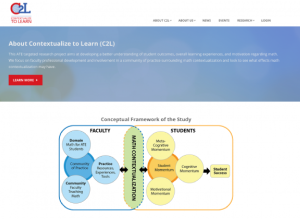Contextualize to Learn: Preparing Faculty Toward Math Contextualization for Student Success in Advanced Technological Education

Competency in mathematics is the cornerstone of educational and career success in the Nation's established and emerging technical fields in Science, Technology, Engineering, and Mathematics (STEM). At the same time, completing courses and mastering mathematics remain major areas of struggle for students who are pursuing degrees and certification in advanced technological programs at community and technical colleges. Building on findings from a pilot study, the research team composed of university researchers and faculty and institutional researchers at 2-year colleges will investigate the adaptation, implementation, and outcomes of contextualized mathematics, a promising instructional approach designed to improve teaching and learning mathematics by connecting mathematics with academic/occupational content and applications in the workplace. Integrating quantitative and qualitative approaches, the mixed methods research study examines faculty professional development, adaptation and implementation of contextualized mathematics in the classroom, and the impact of contextualized mathematics on students' educational and career outcomes in advanced manufacturing, engineering technology, biotechnology, construction technology, and transportation technology.
Using a convergent parallel mixed methods design, this targeted research study is designed to investigate faculty engagement with and professional development around contextualized mathematics and its impact on students. Two critical areas are examined: a) the development of faculty expertise through faculty development and communities of practice, and b) the interim and longer-term impact on student outcomes through the lens of momentum theory, a model of community college student success.
About

Comments